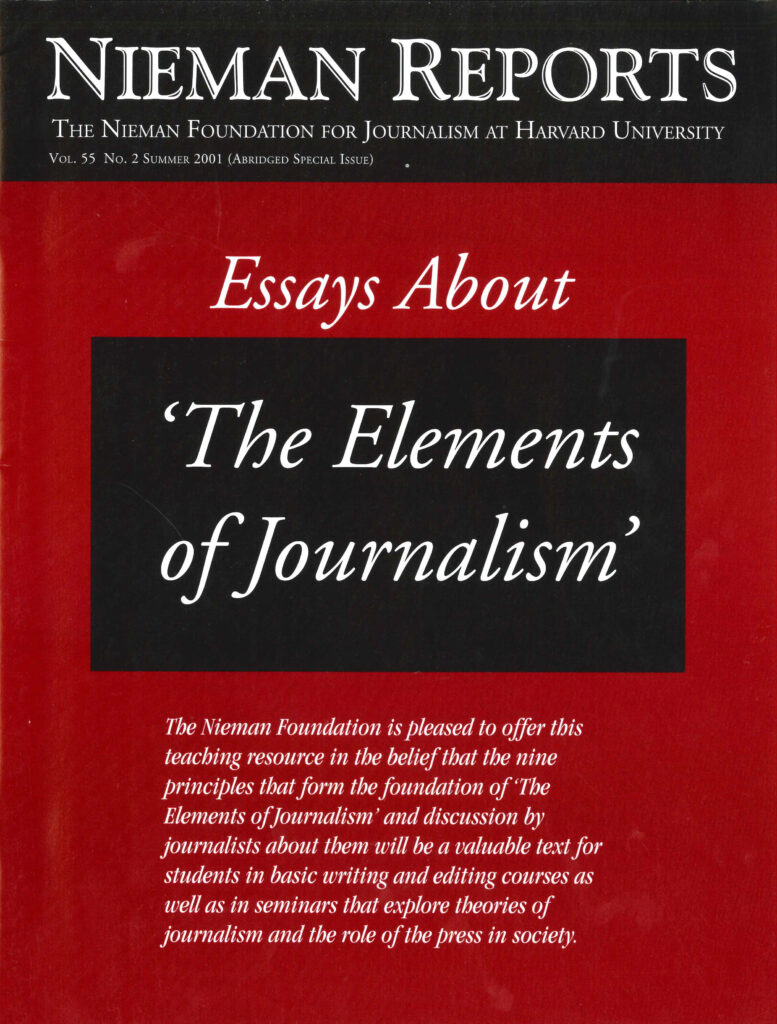“In 1964, the Pulitzer Prize, the most coveted award in newspapers, went to the Philadelphia Bulletin in a new reporting category…called Investigative Reporting. …the journalism establishment was acknowledging a kind of work increasingly done in recent years by a new generation of journalists….
Some old-timers began to grumble. Investigative reporting, they harrumphed, was little more than a two-dollar word for good reporting. In the end, all reporting is investigative. The critics had a point. What the Pulitzer Prize Board formally recognized in 1964 had been, in fact, more than two hundred years in development….[T]he watchdog principle is being threatened in contemporary journalism by overuse, and by a faux watchdogism aimed more at pandering to audiences than public service. Perhaps even more serious, the watchdog role is threatened by a new kind of corporate conglomeration, which effectively may destroy the independence required of the press to perform their monitoring role….
The watchdog principle means more than simply monitoring government, but extends to all the powerful institutions in society…. As firmly as journalists believe in it, the watchdog principle is often misunderstood…. The concept is deeper and more nuanced than the literal sense of afflicting or comforting would suggest. As history showed us, it more properly means watching over the powerful few in society on behalf of the many to guard against tyranny.
The purpose of the watchdog role also extends beyond simply making the management and execution of power transparent, to making known and understood the effects of that power. This logically implies that the press should recognize where powerful institutions are working effectively, as well as where they are not. How can the press purport to monitor the powerful if it does not illustrate the successes as well as the failures? Endless criticisms lose meaning, and the public has no basis for judging good from bad.
…the proliferation of outlets for news and information have been accompanied by a torrent of investigative reportage…. Much of this reportage has the earmarks of watchdog reporting, but there is a difference. Most of these programs do not monitor the powerful elite and guard against the potential for tyrannical abuse. Rather, they tend to concern risks to personal safety or one’s pocketbook. Among some popular topics of prime-time magazines: crooked car mechanics, poor swimming pool lifeguarding, sex slave rings, housecleaning scams, dangerous teenage drivers.
…the expanding nature of journalism as a public forum has spawned a new wave of journalism as assertion, which makes the need for a vibrant and serious watchdog journalism all the more critical. In the next century, the press must watchdog not only government, but an expanding nonprofit world, a corporate world, and the expanding public debate that new technology is creating.”



